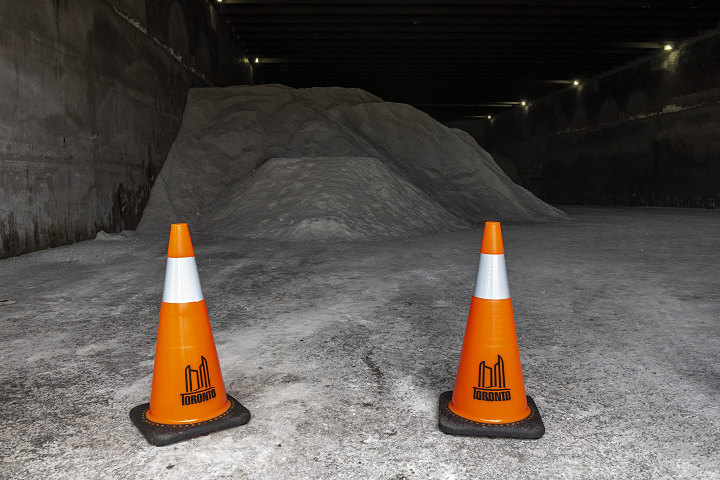Environmental advocates say road salt levels in southern Ontario waterways have hit record highs, making some as salty as the ocean.

World Wildlife Fund Canada says its new maps tracking chloride from road salt show levels in many rural and urban southern Ontario waterways are increasing dangerously.
The organization says road salt’s chloride component is toxic to freshwater species and ecosystems.
It says runoff from winter use is affecting creek and river habitats for species like fish, frogs and mussels, and endangering their survival during the spring and summer spawning season.

Get breaking National news
The organization says more than seven million tonnes of road salt are used in Canada each winter by public road agencies, while use by small towns and private sector companies is not currently tracked in Ontario.
It says the maps are based on data collected during the summer months and allow researchers to compare chloride levels over more than a decade.
- Donald Trump claims B.C.’s ‘very large faucet’ could help California’s water woes
- Canada must speed up progress to hit its 2030 emissions target: report
- U.S. TikTok ban case pits free speech vs. national security. Which will win?
- A final, tragic text from doomed Titan sub revealed at Coast Guard hearing







Comments